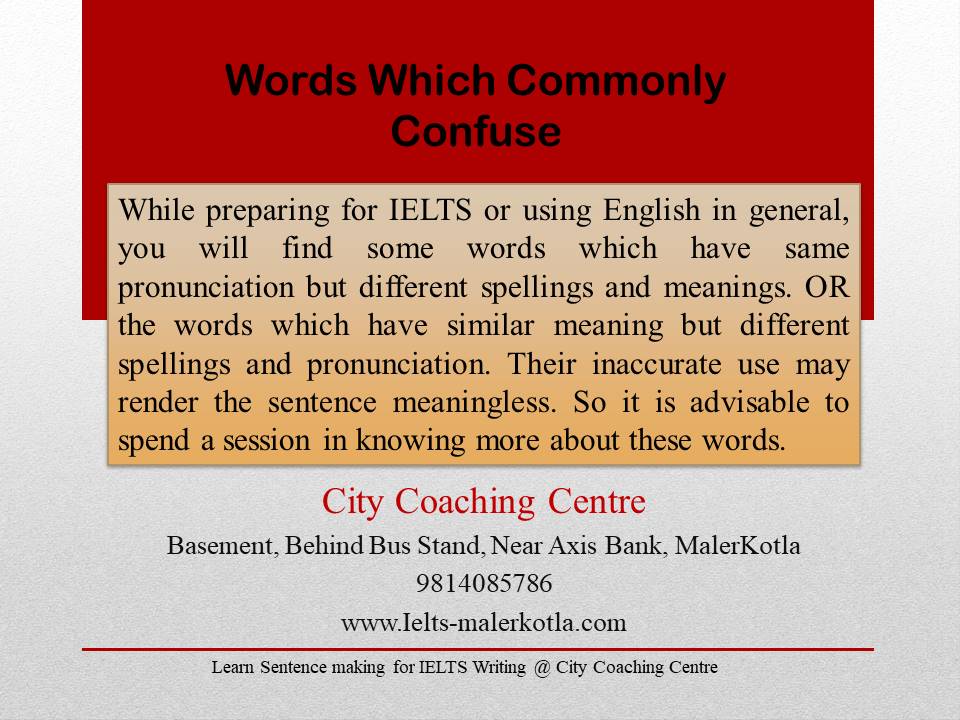While preparing for IELTS or using English in general, you will find some words which have same pronunciation but different spellings and meanings. OR the words which have similar meaning but different spellings and pronunciation. Their inaccurate use may render the sentence meaningless.
So it is advisable to spend a session in knowing more about these words. You can also download the files containing more than hundreds of such words.Click the link to download files which you can read later on or whenever you have free time on your device.
most common pairs with correct definitions and examples:
Words that sound alike or nearly alike but have different meanings often cause writers trouble.
- Accept / Except
- Affect / Effect
- A Lot / Alot
- Allusion / Illusion
- All Ready / Already
- Altogether / All Together
- Apart / A Part
- Ascent / Assent
- Breath / Breathe
- Capital / Capitol
- Cite / Sight / Site
- Complement / Compliment
- Conscience / Conscious
- Council / Counsel
- Elicit / Illicit
- Eminent / Immanent / Imminent
- Its / It’s
- Lead / Led
- Lie / Lay
- Lose / Loose
- Novel
- Passed / Past
- Precede / Proceed
- Principal / Principle
- Quote / Quotation
- Reluctant / Reticent
- Stationary / Stationery
- Supposed To / Suppose
- Than / Then
- Their / There / They’re
- Through / Threw / Thorough / Though / Thru
- To / Too / Two
- Who / Which / That
- Who / Whom
1
ACCEPT-to receive example: He accepts defeat well.
EXCEPT-to take or leave out example: Please take all the books off the shelf except for the red one.
2
AFFECT-to influence
ex: Lack of sleep affects the quality of your work.
EFFECT-n., result, v., to accomplish
ex: The subtle effect of the lighting made the room look ominous.
ex: Can the university effect such a change without disrupting classes?
3
A LOT (two words)-many.
ALOT (one word)-Not the correct form.
4
ALLUSION-an indirect reference
ex:The professor made an allusion to Virginia Woolf’s work.
ILLUSION-a false perception of reality
ex: They saw a mirage: that is a type of illusion one sees in the desert.
5
ALL READY-prepared
ex: Dinner was all ready when the guests arrived.
ALREADY-by this time
ex: The turkey was already burned when the guests arrived.
6
ALTOGETHER-entirely
ex: Altogether, I thought that the student’s presentation was well planned.
ALL TOGETHER-gathered, with everything in one place
ex: We were all together at the family reunion last spring.
7
APART-to be separated
ex: The chain-link fence kept the angry dogs apart. OR My old car fell apart before we reached California.
A PART-to be joined with
ex: The new course was a part of the new field of study at the university. OR A part of this plan involves getting started at dawn.
8
ASCENT- climb
ex: The plane’s ascent made my ears pop.
ASSENT-agreement
ex: The martian assented to undergo experiments.
9
BREATH-noun, air inhaled or exhaled
ex: You could see his breath in the cold air.
BREATHE-verb, to inhale or exhale
ex: If you don’t breathe, then you are dead.
10
CAPITAL-seat of government. Also financial resources.
ex: The capital of Virginia is Richmond.
ex: The firm had enough capital to build the new plant.
CAPITOL-the actual building in which the legislative body meets
ex: The governor announced his resignation in a speech given at the capitol today.
11
CITE-to quote or document
ex: I cited ten quotes from the same author in my paper.
SIGHT-vision
ex: The sight of the American flag arouses different emotions in different parts of the world.
SITE-position or place
ex: The new office building was built on the site of a cemetery.
12
COMPLEMENT-noun, something that completes; verb, to complete
ex: A nice dry white wine complements a seafood entree.
COMPLIMENT-noun, praise; verb, to praise
ex: The professor complimented Betty on her proper use of a comma.
13
CONSCIENCE-sense of right and wrong
ex: The student’s conscience kept him from cheating on the exam.
CONSCIOUS-awake
ex: I was conscious when the burglar entered the house.
14
COUNCIL-a group that consults or advises
ex: The men and women on the council voted in favor of an outdoor concert in their town.
COUNSEL-to advise
ex: The parole officer counseled the convict before he was released.
15
ELICIT-to draw or bring out
ex: The teacher elicited the correct response from the student.
ILLICIT-illegal
ex: The Columbian drug lord was arrested for his illicit activities.
16
EMINENT-famous, respected
ex: The eminent podiatrist won the Physician of the Year award.
IMMANENT-inherent or intrinsic
ex: The meaning of the poem was immanent, and not easily recognized.
IMMINENT-ready to take place
ex: A fight between my sister and me is imminent from the moment I enter my house.
17
ITS-of or belonging to it
ex: The baby will scream as soon as its mother walks out of the room.
IT’S-contraction for it is
ex: It’s a beautiful day in the neighborhood.
18
LEAD-noun, a type of metal
ex: Is that pipe made of lead?
LED-verb, past tense of the verb “to lead”
ex: She led the campers on an over-night hike.
18
LIE-to lie down (a person or animal. hint: people can tell lies)
ex: I have a headache, so I’m going to lie down for a while.
(also lying, lay, has/have lain–The dog has lain in the shade all day; yesterday, the dog lay there for twelve hours).
LAY-to lay an object down.
ex: “Lay down that shotgun, Pappy!” The sheriff demanded of the crazed moonshiner.
ex: The town lay at the foot of the mountain.
(also laying, laid, has/have laid–At that point, Pappy laid the shotgun on the ground).
19
LOSE–verb, to misplace or not win
ex: Mom glared at Mikey. “If you lose that new lunchbox, don’t even think of coming home!”
LOOSE–adjective, to not be tight; verb (rarely used)–to release
ex: The burglar’s pants were so loose that he was sure to lose the race with the cop chasing him.
ex: While awaiting trial, he was never set loose from jail because no one would post his bail.
20
NOVEL-noun, a book that is a work of fiction. Do not use “novel” for nonfiction; use “book” or “work.”
ex: Mark Twain wrote his novel Adventures of Huckleberry Finn when he was already well known, but before he published many other works of fiction and nonfiction.
21
PASSED-verb, past tense of “to pass,” to have moved
ex: The tornado passed through the city quickly, but it caused great damage.
PAST-belonging to a former time or place
ex: Who was the past president of Microsquish Computers?
ex: Go past the fire station and turn right.
22
PRECEDE-to come before
ex: Pre-writing precedes the rough draft of good papers.
PROCEED-to go forward
ex: He proceeded to pass back the failing grades on the exam/Thanks to Shelley for showing us we had “proceed” misspelled as “procede” in one spot!
23
PRINCIPAL-adjective, most important; noun, a person who has authority
ex: The principal ingredient in chocolate chip cookies is chocolate chips.
ex: The principal of the school does the announcements each morning.
PRINCIPLE-a general or fundamental truth
ex: The study was based on the principle of gravity.
24
QUOTE-verb, to cite
ex: I would like to quote Dickens in my next paper.
QUOTATION-noun, the act of citing
ex: The book of famous quotations inspired us all.
24
RELUCTANT-to hesitate or feel unwilling
ex: We became reluctant to drive further and eventually turned back when the road became icy.
RETICENT-to be reluctant to speak; to be reserved in manner. Note that The American Heritage Dictionary lists “reluctant” as a synonym for “reticent,” as the third definition. For nuance and variety, we recommend “reticent” for reluctance when speaking or showing emotion (after all, even extroverts can become reluctant).
ex: They called him reticent, because he rarely spoke. But he listened carefully and only spoke when he had something important to say.
25
STATIONARY-standing still
ex: The accident was my fault because I ran into a stationary object.
STATIONERY-writing paper
ex: My mother bought me stationery that was on recycled paper.
26
SUPPOSED TO-correct form for “to be obligated to” or “presumed to” NOT “suppose to”
SUPPOSE-to guess or make a conjecture
ex: Do you suppose we will get to the airport on time? When is our plane supposed to arrive? We are supposed to check our bags before we board, but I suppose we could do that at the curb and save time.
27
THAN-use with comparisons
ex: I would rather go out to eat than eat at the dining hall.
THEN-at that time, or next
ex: I studied for my exam for seven hours, and then I went to bed.
28
THEIR-possessive form of they
x: Their house is at the end of the block.
THERE-indicates location (hint: think of “here and there”)
ex: There goes my chance of winning the lottery!
THEY’RE-contraction for “they are”
ex: They’re in Europe for the summer–again!
29
THROUGH-by means of; finished; into or out of
ex: He plowed right through the other team’s defensive line.
THREW-past tense of throw
ex: She threw away his love letters.
THOROUGH-careful or complete
ex: John thoroughly cleaned his room; there was not even a speck of dust when he finished.
THOUGH-however; nevertheless
ex: He’s really a sweetheart though he looks tough on the outside.
THRU-abbreviated slang for through; not appropriate in standard writing
ex: We’re thru for the day!
30
TO-toward
ex: I went to the University of Richmond.
TOO-also, or excessively
ex: He drank too many screwdrivers and was unable to drive home.
TWO-a number
ex: Only two students did not turn in the assignment.
31
WHO-pronoun, referring to a person or persons
ex: Jane wondered how Jack, who is so smart, could be having difficulties in Calculus.
WHICH-pronoun, replacing a singular or plural thing(s);not used to refer to persons
ex: Which section of history did you get into?
THAT-used to refer to things or a group or class of people
ex: I lost the book that I bought last week.
32
WHO-used as a subject or as a subject complement (see above)
ex: John is the man who can get the job done.
WHOM-used as an object
ex: Whom did Sarah choose as her replacement?
Everyone knows the problem with spell-check: your word might be spelled right, but it may be the wrong word. English is full of confusing words that sound alike but are spelled differently. It’s also full of words that share similar (but not identical) meanings that are easy to misuse. Below are some of the most commonly confused and misused words in English.
Advice/Advise :
Advice is a noun: Chester gave Posey good advice. Advise is a verb: Chester advised Posey to avoid the questionable chicken salad.
Affect/Effect
Affect is usually a verb: Chester’s humming affected Posey’s ability to concentrate. Effect is usually a noun: Chester was sorry for the effect his humming had. If you find yourself stumped about which one to use in a sentence, try substituting the word “alter” or “result.” If “alter” fits (Chester’s humming altered Posey’s ability to concentrate), use affect. If “result” fits (Chester was sorry for the result his humming had), use effect.
Among/Amongst
Among is the preferred and most common variant of this word in American English. Amongst is more common in British English. Neither version is wrong, but amongst may seem fussy to American readers.
Among/Between
Among expresses a collective or loose relationship of several items: Chester found a letter hidden among the papers on the desk. Between expresses the relationship of one thing to another thing or to many other things: Posey spent all day carrying messages between Chester and the other students. The idea that between can be used only when talking about two things is a myth—it’s perfectly correct to use between if you are talking about multiple binary relationships.
Assure/Ensure/Insure
Assure means to tell someone that something will definitely happen or is definitely true: Posey assured Chester that no one would cheat at Bingo. Ensure means to guarantee or make sure of something: Posey took steps to ensure that no one cheated at Bingo. Insure means to take out an insurance policy: Posey was glad the Bingo hall was insured against damage caused by rowdy Bingo players.
Breath/Breathe
Breath is a noun; it’s the air that goes in and out of your lungs: Chester held his breath while Posey skateboarded down the stairs. Breathe is a verb; it means to exhale or inhale: After Posey’s spectacular landing, Chester had to remind himself to breathe again.
Capital/Capitol
Capital has several meanings. It can refer to an uppercase letter, money, or a city where a seat of government is located: Chester visited Brasίlia, the capital of Brazil. Capitol means the building where a legislature meets: Posey visited the cafe in the basement of the capitol after watching a bill become a law.
Complement/Compliment
A complement is something that completes something else. It’s often used to describe things that go well together: Chester’s lime green boots were a perfect complement to his jacket. A compliment is a nice thing to say: Posey received many compliments on her purple fedora.
Disinterested/Uninterested
Disinterested means impartial: A panel of disinterested judges who had never met the contestants before judged the singing contest. Uninterested means bored or not wanting to be involved with something: Posey was uninterested in attending Chester’s singing class.
Defence/Defense
Defense is standard in American English. Defence is found mainly in British English.
Emigrate/Immigrate
Emigrate means to move away from a city or country to live somewhere else: Chester’s grandfather emigrated from Canada sixty years ago. Immigrate means to move into a country from somewhere else: Posey’s sister immigrated to Ireland in 2004.
E.g./I.e.
These two Latin abbreviations are often mixed up, but e.g. means “for example,” while i.e. means “that is.”
Empathy/Sympathy
Empathy is the ability to understand another person’s perspective or feelings. Sympathy is a feeling of sorrow for someone else’s suffering. A sympathizer is someone who agrees with a particular ideal or cause.
Farther/Further
Farther refers to physical distance: Posey can run farther than Chester. Further refers to metaphorical distance: Chester is further away from finishing his project than Posey is.
Flaunt/Flout
Flaunt means to show off: Chester flaunted his stylish new outfit. Flout means to defy, especially in a way that shows scorn: Posey flouted the business-casual dress code by wearing a tiara and flip-flops.
Gaff/Gaffe
A gaff is a type of spear or hook with a long handle: Chester completed his sailor costume with a gaff borrowed from his uncle’s fishing boat. A gaffe is a faux pas or social misstep: Posey made a gaffe when she accidentally called Chester by the wrong name.
Gray/Grey
Gray is the standard American English spelling. Grey is the standard British English spelling.
Historic/Historical
Historic means famous, important, and influential: Chester visited the beach in Kitty Hawk where the Wright brothers made their historic first airplane flight. Historical means related to history: Posey donned a historical bonnet for the renaissance fair.
Imply/Infer:
Imply means to hint at something without saying it directly: Chester implied that Posey was in trouble, but he wouldn’t tell her why. Infer means to deduce something that hasn’t been stated directly: Posey inferred that Chester was nervous about something from the way he kept looking over his shoulder.
It’s/Its
It’s is a contraction of “it is”: Posey needs to pack for her trip because it’s only two days away. Its is a possessive pronoun that means “belonging to it”: Chester is obsessed with both the book and its author.
Lay/Lie
To lay means to put or to place. One way to remember this is that there is an a in both to lay and to place: Posey will lay out her outfit before she goes to bed. To lie means to recline. One way to remember this is that there is an e in both to lie and to recline: Chester will lie down for a nap. Be careful, though. The past tense of to lay is laid: Posey laid out her outfit. The past tense of to lie is lay: Chester lay down for a nap over an hour ago.
Lead/Led
Lead, when it rhymes with “bed,” refers to a type of metal: Posey wore a lead apron while the dentist X-rayed her teeth. Led is the past tense of the verb to lead, which means to guide or to be first: Chester led the way.
Learned/Learnt
Learned is standard in American English. Learnt is standard in British English.
Loose/Lose
Loose is usually an adjective: Posey discovered that the cows were loose. Lose is always a verb. It means to misplace something or to be unvictorious in a game or contest: Chester was careful not to lose his ticket.
Principal/Principle
Principal can be a noun or adjective. As a noun, it refers to the person in charge of a school or organization: Posey was called into the principal’s office. As an adjective, it means most important: The principal reason for this meeting is to brainstorm ideas for the theme of Chester’s birthday party. A principle (always a noun) is a firmly held belief or ideal: Posey doesn’t like surprise parties as a matter of principle.
Inquiry/Enquiry
Inquiry and enquiry both mean “a request for information.” Inquiry is the standard American English spelling. Enquiry is the British spelling.
Stationary/Stationery
Stationary means unmoving: The revolving door remained stationary because Posey was pushing on it the wrong way. Stationery refers to letter writing materials and especially to high quality paper: Chester printed his résumé on his best stationery.
Than/Then
Than is used for comparisons: Posey runs faster than Chester. Then is used to indicate time or sequence: Posey took off running, and then Chester came along and finished her breakfast.
Their/There/They’re
Their is the possessive form of “they”: Chester and Posey took their time. There indicates a place: It took them an hour to get there. They’re is a contraction of “they are”: Are Chester and Posey coming? They’re almost here.
To/Too
To is a preposition that can indicate direction: Posey walked to school. She said hello to Chester when she saw him. To is also used in the infinitive form of verbs: Chester waited until the last minute to do his homework. Too is used as an intensifier, and also means “also”: Posey waited too long to do her homework, too.
Toward/Towards
Toward is standard in American English. Towards is standard in British English.
Who’s/Whose:
Who’s is a contraction of “who is”: Who’s calling Chester at this hour? Whose is a possessive pronoun that means “belonging to [someone]”: Chester, whose phone hadn’t stopped ringing all morning, barely ate anything for breakfast.
Downloads
- Preference Sentences
 Find a number of examples of Preference sentences and clear your understanding how to use correctly rather, prefer, would prefer, would rather….
Find a number of examples of Preference sentences and clear your understanding how to use correctly rather, prefer, would prefer, would rather…. - Rather / Rather than / Instead of
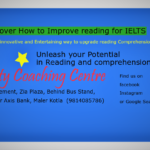 Check here a number of example sentences to know how to use Rather, Rather than, Instead of correctly. This will help you in avoiding errors in IELTS writing.
Check here a number of example sentences to know how to use Rather, Rather than, Instead of correctly. This will help you in avoiding errors in IELTS writing. - Check your grammar level in English
 This is approximately your current level of English and you should make a plan to further improve your English.For example, if you are at Pre-intermediate level currently, you should make plan to achieve Intermediate level.
This is approximately your current level of English and you should make a plan to further improve your English.For example, if you are at Pre-intermediate level currently, you should make plan to achieve Intermediate level. - Sentences with PUT
 Check herein list of English sentences with PUT.Punjabi translation is also given.
Check herein list of English sentences with PUT.Punjabi translation is also given. - Sentences with “SO”
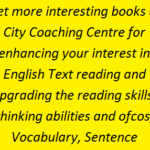 Find here a list of sentences with SO.Punjabi translation is also given for easy understanding of accurate use of word “So”
Find here a list of sentences with SO.Punjabi translation is also given for easy understanding of accurate use of word “So” - Difference between “So” and “So That”
 Know the difference between so and so that.As a conjunction, ‘so’ is used to show the effect or result.As a conjunction ‘so that’ is used to talk about purpose
Know the difference between so and so that.As a conjunction, ‘so’ is used to show the effect or result.As a conjunction ‘so that’ is used to talk about purpose - Sentences with BECAUSE
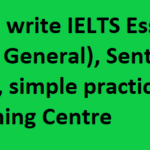 Learn through example sentences how to use BECAUSE accurately.English sentences with Punjabi translation are given for easy understanding.
Learn through example sentences how to use BECAUSE accurately.English sentences with Punjabi translation are given for easy understanding. - Sentences with TAKE
 Learn through example sentences how to use TAKE accurately.English sentences with Punjabi translation are given for easy understanding.
Learn through example sentences how to use TAKE accurately.English sentences with Punjabi translation are given for easy understanding. - Sentences with MAKE
 Learn through example sentences how to use MAKE accurately.English sentences with Punjabi translation are given for easy understanding.
Learn through example sentences how to use MAKE accurately.English sentences with Punjabi translation are given for easy understanding. - Phrasal Verbs List
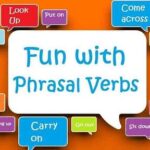 Phrasal verbs are usually two-word phrases consisting of verb + adverb or verb + preposition. Think of them as any other English vocabulary. Study them as you come across them, rather than trying to memorize many at once. Check here most common phrasal verbs with meaning and examples.
Phrasal verbs are usually two-word phrases consisting of verb + adverb or verb + preposition. Think of them as any other English vocabulary. Study them as you come across them, rather than trying to memorize many at once. Check here most common phrasal verbs with meaning and examples.
